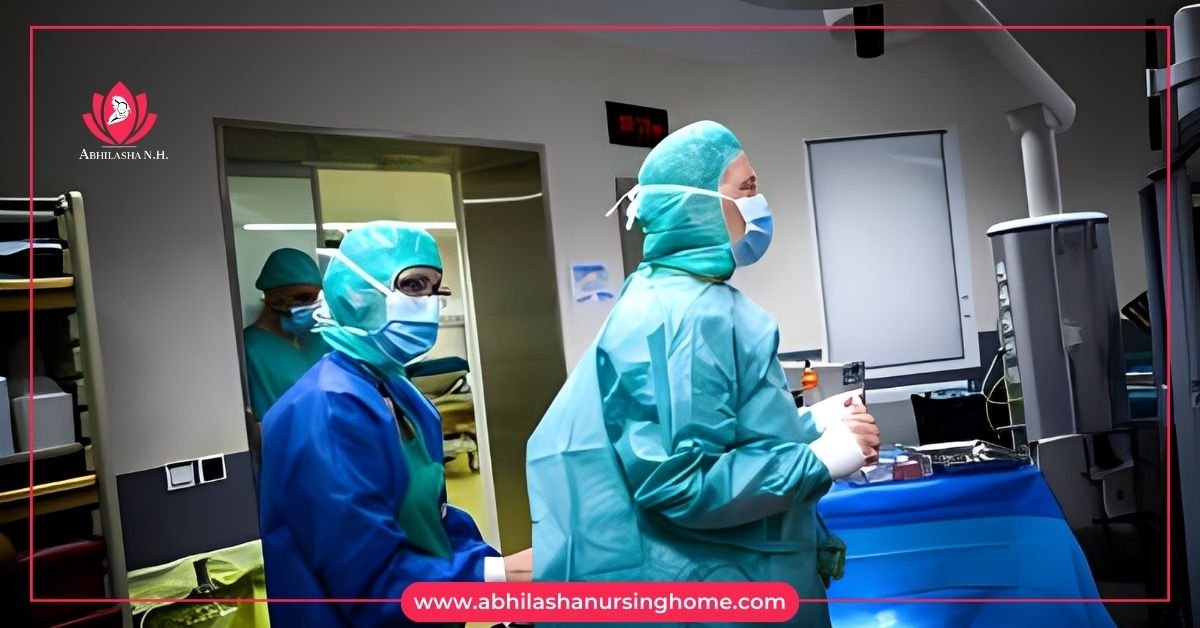A hysterectomy is a surgical procedure that involves the removal of a woman’s uterus. It is a significant decision often made for various medical reasons.
For many women, the decision to undergo a hysterectomy is a significant and often complex one, requiring careful consideration of various factors. Abhilasha Nursing Home stands as a beacon of support for women facing this choice, providing comprehensive care and expertise in the realm of gynecological health. Let’s delve into the world of hysterectomy, exploring its purpose, procedure, benefits, risks, and recovery under the compassionate guidance of Abhilasha Nursing Home.
Purpose:
Hysterectomy is recommended to address various gynecological conditions, including uterine fibroids, endometriosis, chronic pelvic pain, abnormal bleeding, and certain types of cancer, such as uterine or ovarian cancer. The decision to undergo a hysterectomy is typically based on the severity of the condition, the individual’s health, and their reproductive goals.
Procedure:
There are different types of hysterectomy procedures, including total hysterectomy (removal of the uterus and cervix), subtotal or partial hysterectomy (removal of the uterus but leaving the cervix intact), and radical hysterectomy (removal of the uterus, cervix, parts of the vagina, and surrounding tissues). The surgery can be performed through various approaches, such as abdominal, vaginal, or laparoscopic methods, depending on the patient’s condition and the surgeon’s expertise.
Benefits:
Hysterectomy can bring relief from the symptoms and complications associated with gynecological conditions. It may alleviate chronic pain, heavy bleeding, and other issues that significantly impact a woman’s quality of life. Additionally, for women with cancer, hysterectomy can be a crucial part of cancer treatment, offering a chance for a cure or long-term remission.
Risks:
Like any surgical procedure, hysterectomy carries certain risks. These may include infection, bleeding, damage to surrounding organs or tissues, and adverse reactions to anesthesia. Additionally, the removal of the uterus means the end of fertility, so it’s essential for individuals to carefully consider the irreversible nature of the surgery and its potential emotional and hormonal impacts.
Recovery:
Recovery from hysterectomy varies depending on the type of procedure and the individual’s overall health. Patients can generally expect discomfort, fatigue, and restricted activity during the initial recovery period. Most women can return to normal activities within six to eight weeks, although strenuous exercise and heavy lifting may need to be avoided for a more extended period.
In conclusion, a hysterectomy is a significant medical procedure with benefits and risks. It is crucial for individuals considering this surgery to have open and thorough discussions with their healthcare providers to understand the specific reasons for the recommendation, the available options, and the potential impacts on their health and well-being. Making an informed decision ensures that the benefits of a hysterectomy outweigh the associated risks, leading to improved overall health and quality of life.
Abhilasha Nursing Home in Agra stands as a pillar of support for women navigating the complexities of hysterectomy. By prioritizing individualized care, transparent communication, and a commitment to well-being, Abhilasha Nursing Home empowers women to make informed decisions about their health, ensuring a journey through hysterectomy that is not only medically sound but also emotionally supportive.

